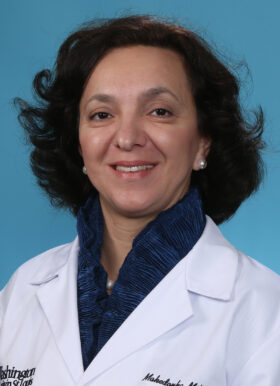
Makedonka Mitreva, PhD
The Robert E. and Louise F. Dunn Professor of Medical Sciences, Departments of Medicine and Genetics
- Phone: 314-286-2005
- Fax: 314-286-1810
- Email: mmitreva@nospam.wustl.edu
- BS: Ss. Cyril and Methodius University, Skopje, Macedonia (1990)
- MS: Ss. Cyril and Methodius University, Skopje, Macedonia (1994)
- PhD: Wageningen University and Research Centre, The Netherlands (2001)
- Postgraduate Reserach Associate: Dept of Genetics, Washington University School of Medicine, St. Louis Mentors: Dr. Robert Waterston and Dr. Richard Wilson (2004)
- Talented Students Scholarship, Ministry of Science, Macedonia (1991-1994)
- Graduate Scholarship, Wageningen University, The Netherlands (1997-2001)
- Storm-van der Chijs Stipendium, creativity and self-initiative in scientific research, The Netherlands (2000)
- Best Ph.D. student paper award, Society of Nematologists, USA (2001)
- Genome Technology 2011 “Tomorrow’s PIs’ (2011)
- Member of Scientific Program Committee, ASTMH (2018-present)
- Member of the Educational Committee, ASP (2018-present)
- Innovator Award, Washington University School of Medicine (2019)
- Associate Editor, PLoS Neglected Tropical Diseases (2015-2018)
- Member of the Editorial Board, International Journal of Parasitology-Drug and Drug Resistance (2019-present)
- Deputy Editor, PLoS Neglected Tropical Diseases (2020-present)
- Standing Member, NIH study section: Genome Variation and Evolution (2021-present)
- Bailey K. Ashford Medal, American Society of Tropical Medicine and Hygiene (2021)
- Member of the Specialist Editorial Board of the International Journal for Parasitology (2022-present)
Dr. Mitreva focuses on two main threads to her current research.
She studies neglected tropical diseases (NTDs). There are 17 parasitic and bacterial infections that cause blindness, anemia, malnutrition, growth and development stunting in children, and severe morbidity and mortality during pregnancy in women. These infections can also increase the risk of co-infection with HIV/AIDS, tuberculosis and malaria. Their impact on health and socioeconomic status (mainly in the developing world) result in promoting and maintaining poverty. As the United Nations secretary general recently stated, “Poverty reduction and the elimination of NTDs go hand-in-hand.”
The work of her lab translates basic science advances in genomics into practical knowledge that contributes to control or elimination of helminth NTDs (including hookworm, ascaris and whipworm, and flukes, including major biological carcinogens). Her lab takes advantage of next-generation genomic and computational approaches to study:
- taxonomically restricted and differentially represented pathways in parasites and their potential as targets for drug development,
- helminth genetic variations in natural infections,
- host response to parasite infections,
- identification of candidate antigens for vaccine or serodiagnostis,
- molecular characterization of understudied parasite of global importance.
Through comparative pan-omics systems biology analysis her lab has provided fundamental molecular information for these devastating parasites of major medical and global importance accelerating both basic and translational research.
The second area of Dr. Mitreva’ s research is focused on the human microbiome. Dr. Mitreva’ s current efforts are to use targeted and shotgun sequencing of metagenomic communities of microbes to understand their biology. To study metagenomic communities through shotgun sequencing, advances in computational approaches and tools are needed, therefore we develop new and improve existing computational tools that will allow precise identification and comparison of taxonomic structure and functional capability of microbial communities in a robust fashion. These tools are used to identify genes, pathways and organisms within communities and use this information to determine what is common and variant among healthy and disease states, leading to identification of members or functions that are associated with different physiologic disease states.